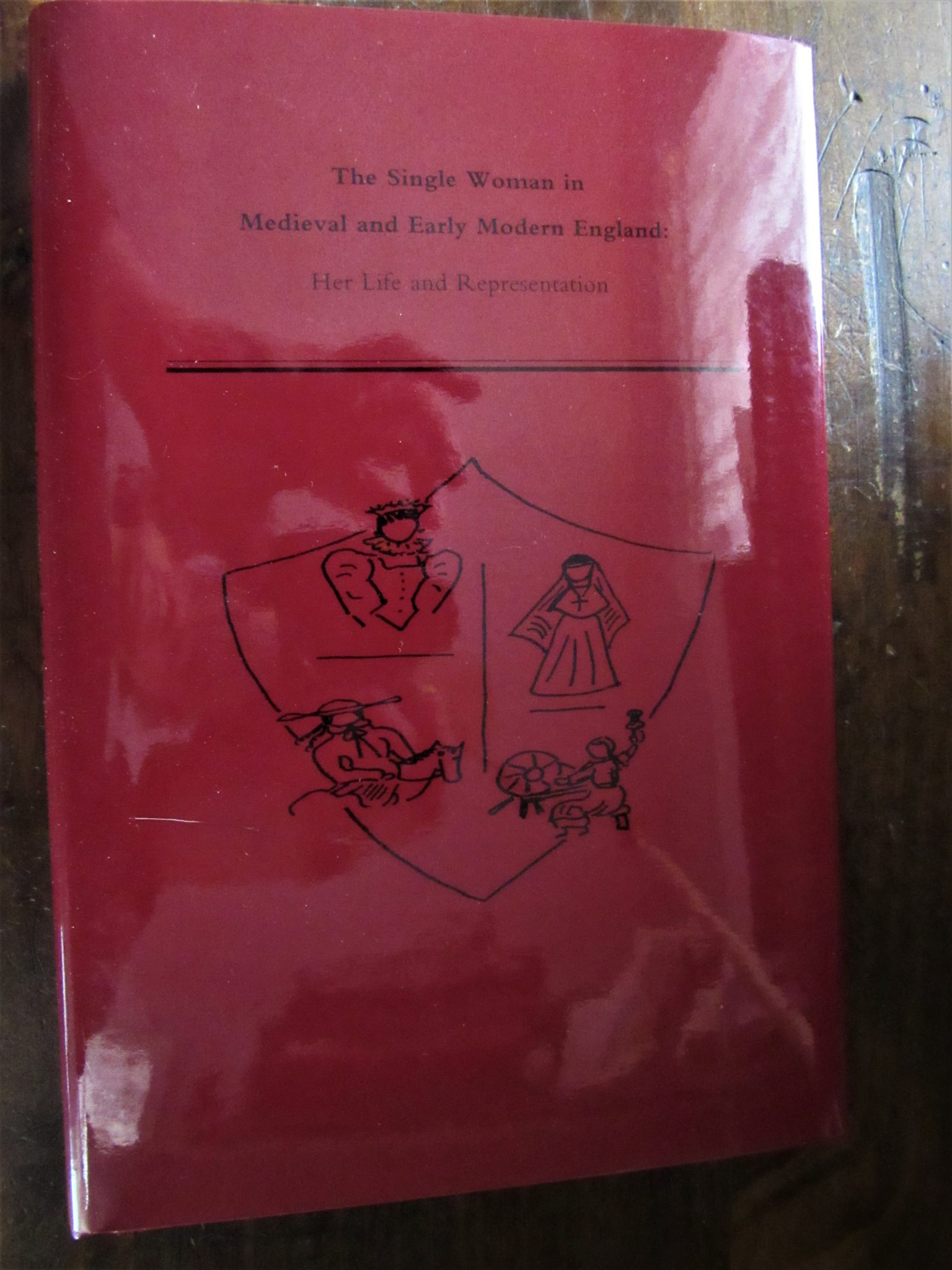Description
Laurel Amtower and Dorothea Kehler. The Single Woman in Medieval and Early Modern England : Her Life and Representation. Arizona Center for Medieval and Renaissance Studies 2003 Hardcover in DJ Like New/Like New Unused Octavo 242 pp
“The eleven essays are arranged under four sub-headings, designed to examine by turn the celebration of celibacy, the deferral of marriage, the liminality of widowhood, and finally the significance of virginity (this last sub-section would likely make more sense if placed at the beginning rather than at the end of the volume).
Part I: Celebrating Celibacy focusses on the medieval period, with essays on Anglo-Norman single woman saints (Jane Zatta), variations on the fifteenth-century legends of St. Katherine of Alexandria (Paul Price), and Malory’s use of the single woman as a determining signifier of the masculine (single man) virtue of chivalry (Dorsey Armstrong).
Part II: Repudiating Marriage considers the versatility of money-lending as an occupation that allowed late Tudor and Stuart Englishwomen to remain single by choice (Judith M. Spicksley), and John Lyly’s alternatives to marriage as a generic conclusion for comedy in the Elizabethan court (Jacqueline Vanhoutte). Women
Part III: Imaginary Widowhood includes Amtower’s and Jeanie Grant Moore’s re-assessments of Chaucer’s widows, and Allison Levy’s examination of widow portraiture as an expression of masculine anxiety in the Restoration period. Amtower’s consideration of Chaucer’s Dido and Cleopatra (from Legend of Good Women), Criseyde, and the Wife of Bath as widows, presents a wide-ranging set of characteristics for this sub-category of the single woman. From pathetic to noble, from self-silenced iconic figures to more or less successful speakers, the widow for individually determined status.
Part IV: Sexuality and Revirgination traces the connections between female desire and its representations in virginal women. Perhaps the most compellingly nuanced essay in the collection, by Tracey Sedinger, considers how “[w]omen were usually represented as strangely ‘class-less’…even though their virtue implicitly signified an elevated social status” in versions of maidservant-lady relationships in Ariosto’s Orlando Furioso (Book 4), Spenser’s Faerie Queene (Book 2), and Shakespeare’s Much Ado About Nothing . Sedinger, unlike some of the other authors in this collection, notes explicitly the anachronism of some feminist approaches to the medieval and early modern female subject, which places priority on agency as a contingency of subjectivity.” Seventeenth Century News


